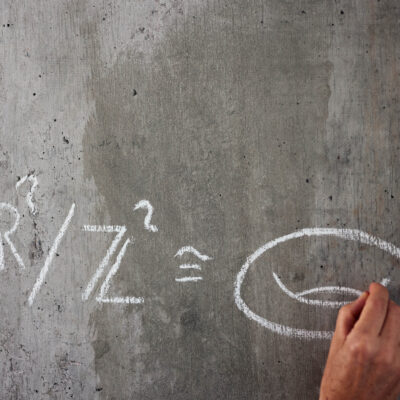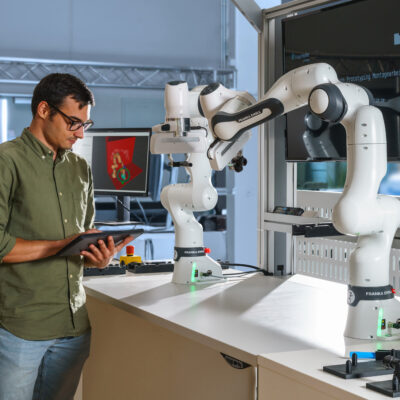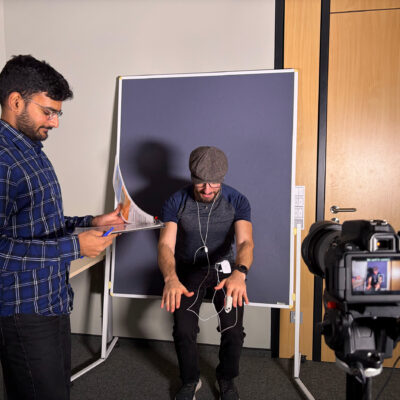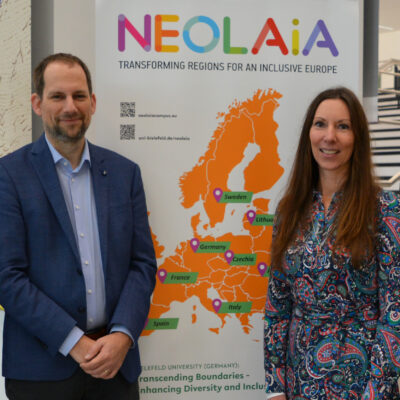Mathematics professor Dr Claudia Alfes-Neumann is not only enthusiastic about complicated calculations but also about collaborating with other academics. At the Faculty of Mathematics, she researches modular forms: special functions that play a role in many fields of mathematics.
For Claudia Alfes-Neumann, mathematics is sometimes like magic: ‘Our calculations are very complex. It often takes months to understand them—and then things finally fit together. This is what I find so fascinating.’ Alfes-Neumann has been the head of a working group at the Faculty of Mathematics at Bielefeld University since 2021, conducting research on modular forms.
Modular forms are special mathematical functions. They are particularly important in number theory, a field of mathematics that deals with the properties of numbers. ‘Modular forms can be used, for example, to count something,’ says Alfes-Neumann. For instance, how many ways are there to represent a natural number as the sum of two square numbers? The number eight can be represented as 22+22, but also as (-2)2+(-2)2, 22+(-2)2 and (-2)2+22.
‘By studying modular forms, we can learn things about other problems in mathematics: such as whether certain numbers given by geometric expressions belong to the rational numbers,’ says Alfes-Neumann. Modular forms are important for major mathematical proofs: for example, they play a central role in the proof of the sphere packing problem for which the Ukrainian scientist Maryna Viazovska received the Fields Medal in 2022—the highest prize in mathematics. Researchers have also used modular forms to prove Fermat’s Last Theorem. This is considered one of the most important proofs in the history of mathematics.
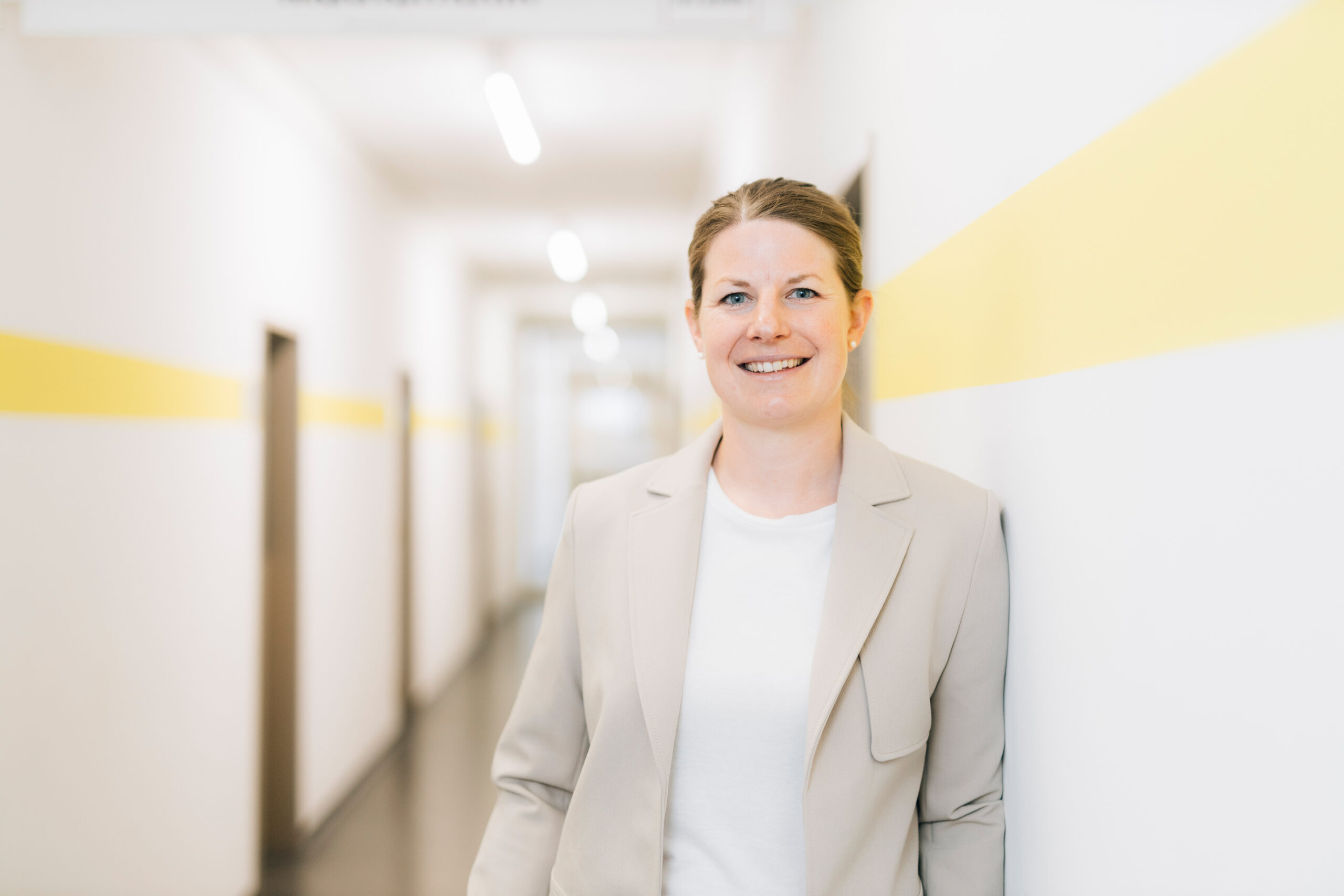
© Bielefeld University/Michael Adamski
Solving mathematical problems
Alfes-Neumann came to her field of research through a stay in the USA. While studying mathematics at RWTH Aachen University, she spent a year at the University of Wisconsin, Madison. ‘There I worked intensively on modular forms for the first time. Unlike in my previous studies, I was suddenly able to deal with mathematical problems that did not yet have a solution,’ Alfes-Neumann recalls. She found this so exciting that she decided to go for a doctorate—despite an offer from a management consultancy. After working in Darmstadt, Heidelberg, Cologne, and Paderborn, Alfes-Neumann is now at Bielefeld University.
In the Collaborative Research Centre ‘Integral Structures in Geometry and Representation Theory’ (CRC/TRR 358), Alfes-Neumann is a member of the management committee and heads two projects. The Transregional CRC is jointly supported by Bielefeld University and Paderborn University. In January 2023, the German Research Foundation (DFG) decided to fund the collaborative research centre with 10.7 million euros for an initial four years. ‘In the CRC, one of the things I am trying to understand is zeta functions of groups and rings with the help of modular forms. This means working together with researchers in algebra, for example,’ says Alfes-Neumann.
‘Modular forms are also interesting because they play a role in many fields of mathematics,’ says Alfes-Neumann. She and her colleagues want to create and expand such synergies even more systematically in the future: ‘We have to transcend subdisciplines and think more about what we can already do and which problems we can solve with this knowledge.
Alfes-Neumann appreciates the freedom that working as an academic gives her: ‘I can lock myself in my office and do research on my own, or discuss this mathematics with students and doctoral candidates. But I can also decide to help shape a larger research project.’ For example, Alfes-Neumann is committed to promoting women: she organizes regular meetings for female CRC members, and together with colleagues from the University of Konstanz and the University of Bremen, she is organizing a conference explicitly aimed at female mathematicians.
Better networking for female mathematicians
‘Mathematics is still a male-dominated field. In my own studies, I was in my fourth year before a female lecturer taught me for the first time,’ says Alfes-Neumann. She thinks it’s important to better connect women in science: ‘That will provide more opportunities to also talk about personal experiences—for example, what it’s like to become a mother as a postdoc.’
Alfes-Neumann has a seven-year-old son. ‘But of course, we don’t just do maths together,’ she says. For a long time, Alfes-Neumann was a competitive triathlete. She still goes running and swimming a lot and enjoys playing football—now also with the Bielefeld Professors’ football team.

